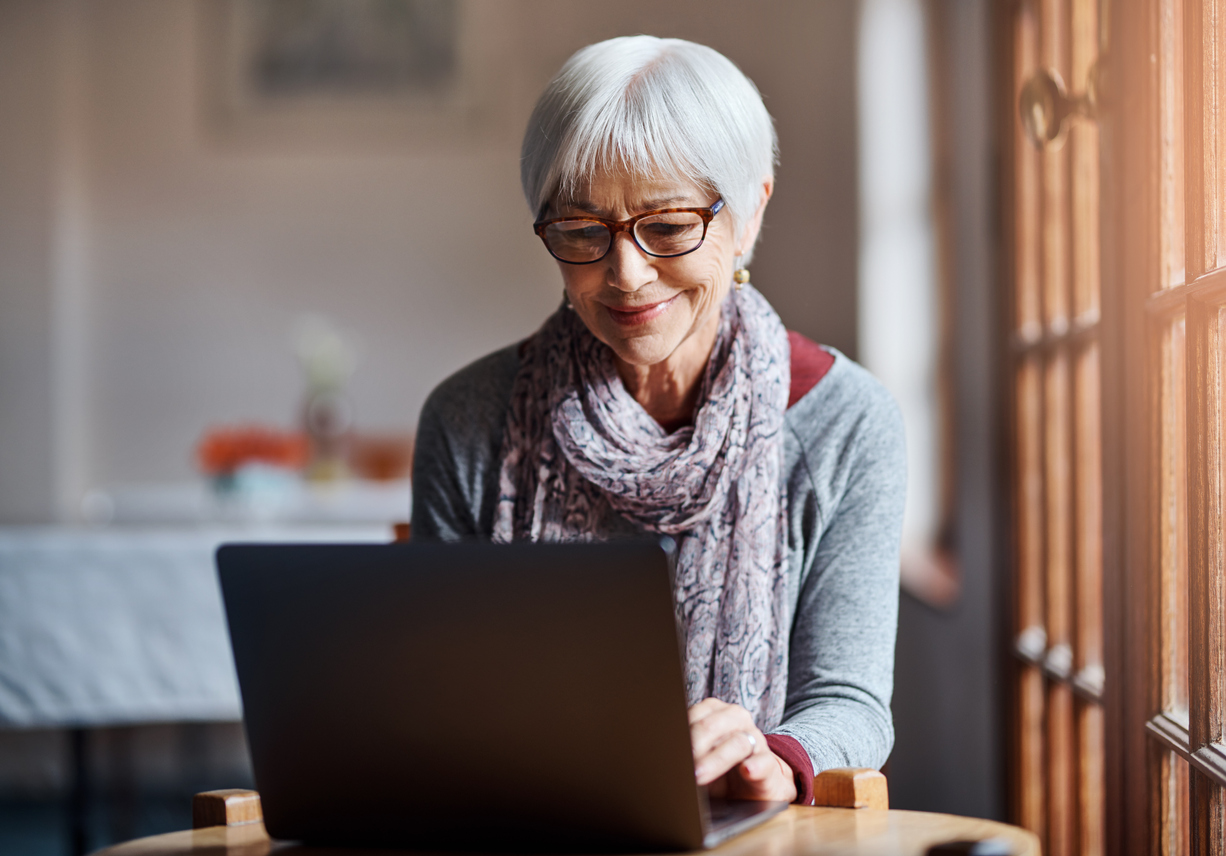Keep Moving. Stay Connected. Be Thankful.

On April 3, the Kaiser Permanente Senior Caucus will meet by phone and hear a longtime friend of Aging and Disability Services, Dr. Christine Fordyce. The meeting notice included this text from Dr. Fordyce, which I hope you will read:
“We all know how important staying socially connected and physically active is to our health and wellbeing as we get older. The new coronavirus is not only a threat because it is a potentially deadly virus, but it also will affect the health of even more older adults as we become more socially isolated and sedentary.
“NOW is also the time to make sure we continue to have regular social connections and stay physically and mentally active. Call friends and family. Use facetime or Skype when possible so you can see each other’s faces. Be especially attentive to neighbors or others who have few connections. Use e-mail regularly. Facebook allows you to see what is happening more broadly in your circle of friends.
“Make sure you are stimulating your mind. Talking with others is a great way but also try learning something new. Try memorizing a poem, a phrase in a foreign language, or writing a story about some aspect of life or your experience during this crisis. This is a time to be creative and inspire others to do the same.

The March 18 special edition of AgeWise King County focuses on coronavirus and older people in Seattle and King County, with links to trusted information sources.
“And make sure to keep moving! Try to stretch every day, especially your neck and your back. Look on TV for an exercise or yoga program. Take laps around the house and count your steps, write them down and keep doing more every day. Look up how many steps it would take you to get to your neighbor’s. Keep doing the laps until you have enough steps to get down the block and beyond.
“We will be checking in with you to share each other’s creative ways to keep our minds and bodies active and to stay connected with our communities and even potentially joining new ones virtually. Keep yourself at a distance from others physically but share worries and joys every day in every way you can. We’ll be back wanting to know how you’re finding good ways to do that. Keep lists!”
Thank you, Dr. Fordyce! Your wisdom and expertise continues to inspire. We credit you with four words of advice for healthy aging that we use often: Keep moving. Stay connected.

Community Living Connections is operating with full staff to respond to your questions about aging and disability issues during the COVID-19 crisis. Click on the graphic above to visit online or call (toll-free) 1-844-348-5464.
I also want to share a portion of a message by Dr. Benjamin Hardy, an organizational psychologist and author, that was forwarded to me via staff at Aging and Disability Services:
“Two days ago, when I came home from my office, the house was crazy! I have five kids, and sometimes our home can be a mad-house, literally. To put it bluntly, I did not transition well from being at work to being home. I was not flexible or adaptive. Instead, I was rigid and self-absorbed. The result is that I was constantly frustrated at the kids, and ultimately, creating more problems than I was solving.
“That night when I went to bed, I thought about all the things that were stressing me out. Work, the global pandemic, raising five kids … and mostly, my own self. I realized that I was creating most of my problems. Yes, there are stresses and we are living in very strange, sad, and uncertain times. But when it comes to my own life, situation, and relationships … I have a lot of control and influence over how that goes. I apologized to my wife.
“The next morning (yesterday), I woke up early, did an amazing morning routine. Got working and moving (jump rope these days). I felt amazing. I was incredibly productive. I ended up shooting several positive text messages to people, just telling them I love them and hope they’re doing well. When I got home from work, I chose to be flexible, patient, affirming, and supportive. I let a lot of stuff go, that didn’t really matter. I viewed my situation, and my kids, with gratitude and appreciation. Who knows what the future will hold? But right now, I have this amazing moment. I need to cherish it.
“I could immediately feel a difference in the environment. I brought love and warmth. I was able to play Frisbee with my sons, enjoy an amazing dinner, and even make a decision to hold myself to a higher standard in one of my business relationships.
“What a difference 24 hours can make. Last night, I went to bed feeling amazing.
“Gratitude was the key. Gratitude changes everything. Gratitude pulls you out of yourself and allows you to see the amazing things right in front of you, even during painful or difficult times. Gratitude is ESSENTIAL right now, with all we’re dealing with.”
Take time to reach out to others and take time for yourself.
 Contributor Ava Frisinger chairs the Seattle-King County Advisory Council on Aging & Disability Services, which publishes AgeWise King County. She welcomes input from readers via e-mail (advisorychair@agewisekingcounty.org) as well as applicants for open positions on the council. For more information, visit www.agingkingcounty.org/advisory-council.
Contributor Ava Frisinger chairs the Seattle-King County Advisory Council on Aging & Disability Services, which publishes AgeWise King County. She welcomes input from readers via e-mail (advisorychair@agewisekingcounty.org) as well as applicants for open positions on the council. For more information, visit www.agingkingcounty.org/advisory-council.
This article originally appeared in the April 2020 issue of AgeWise King County.
![Aging & Disability Services for Seattle & King County [logo]](https://www.agingkingcounty.org/wp-content/themes/sads/images/seattle-ads-logo.png)